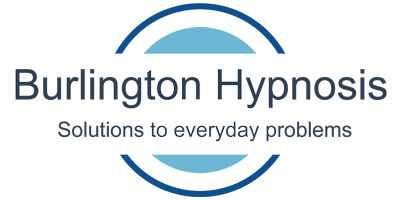 When my anxiety and insomnia returned, my therapist suggested a new form of treatment. The results challenged my inner skeptic. I hadn’t slept more than two hours a night. It was the summer of 2016, and I had spent all night with my face in my palms, shaking in the bathroom of my Brooklyn third-floor walk-up.
When my anxiety and insomnia returned, my therapist suggested a new form of treatment. The results challenged my inner skeptic. I hadn’t slept more than two hours a night. It was the summer of 2016, and I had spent all night with my face in my palms, shaking in the bathroom of my Brooklyn third-floor walk-up.
The 3 a.m. stroll in my neighborhood that my boyfriend encouraged me to go on with him had the opposite effect of a Xanax, and the speed of my anxious thoughts was physically excruciating.
I was in the midst of a new trial of antidepressants — my Lexapro stopped working after seven years — and I had been engulfed in anxiety-induced insomnia since college, the kind where sleep doesn’t exist without the use of prescription sleep aids. I was so tired, but my anxiety made me fear rest.
I made a decision: I’d check myself into a psychiatric hospital. When my boyfriend woke up, I told him my plan, while attempting not to drown in my shame. “Babe, there’s nothing wrong with going to a doctor or a hospital,” he told me. “If you broke your arm, that’s where you’d go.”
Before I left for the hospital, I decided to call my therapist for her advice. She revealed she had an alternative treatment idea for me, cautioning me to “be open.” “You need to go to Joanne. She’s a miracle worker,” she told me. “What does she do? I don’t understand,” I said.“She’s a hypnotist,” she replied.
Before that summer, I had assumed hypnosis involved mind control, a pocket watch swinging in front of my face and me unknowingly word-vomiting my secrets. But after hitting rock bottom with my depression, anxiety, insomnia and obsessive-compulsive disorder after a layoff from my media job, I was willing to try anything.
At that point, life had become an amalgamation of “Groundhog Day” and “Russian Doll.” It was an understatement to say that the cocktail of  mental health issues I suffered from was suffocating me. Some days, the extra energy I had made my job as a writer easy — people called it hustle, I called it keeping myself sane.
mental health issues I suffered from was suffocating me. Some days, the extra energy I had made my job as a writer easy — people called it hustle, I called it keeping myself sane.
Other days, I could barely get out of my wrinkled T-shirt and queen-size bed. I had to silence my inner skeptic. I was a high-functioning zombie who had hit rock bottom, so what did I have to lose?
If hypnosis had the power to save me, I’d be a fool not to give it a try. What was slightly comforting to me was that research proved that hypnosis wasn’t just a woo-woo concept, and that it did, in fact, have effects.
A 2016 study conducted by Stanford University School of Medicine found changes in three areas of the brain when people are hypnotized and 2013 findings from the University of Quebec in Montreal revealed that “the short-term effects of hypnosis (one-two months) and relaxation training were comparable to the effects of short-term drug therapy, and that the long-term outcomes even surpassed the drug therapy in certain instances.”
Just a few weeks later, the already overbooked Joanne made time for me in her schedule. Two trains, a cab and three hours later I sat in a dimly lit corner office of a wellness center on Long Island.
Our session began like any talk therapy appointment as she listened to me relay an abridged version of my trauma, in between my dry-heaving — how it had been seven years since I had been in the throes of anxiety-induced insomnia, how my medication stopped working, how the weight of my body was crushing me and how losing my job and going freelance had imprisoned me on a hamster wheel of worry.
 Near the end of our conversation, she asked me to lie back in a red leather recliner and “relax” — a word truly no person with anxiety fully comprehends. “Do you trust me?” she asked. “Yes, but I’m worried hypnosis won’t work on me or that this is some kind of fake energy thing.” “I get it,” she said. “But in a few sessions, you’ll believe in it.”
Near the end of our conversation, she asked me to lie back in a red leather recliner and “relax” — a word truly no person with anxiety fully comprehends. “Do you trust me?” she asked. “Yes, but I’m worried hypnosis won’t work on me or that this is some kind of fake energy thing.” “I get it,” she said. “But in a few sessions, you’ll believe in it.”
Soon enough, musical chimes rang in my ears as my eyes fluttered shut. For 20 minutes, my mind floated in darkness as Joanne read a nonsensical script full of “suggestions” — straightforward statements that create a hypnotic state — for my overworked thoughts.
As she recited a slew of jumbled words, it felt as if a magic wand was sprinkling tranquility around me like glitter. A tingling overcame my body as the chimes circled my brain like waves.
And with that, a small part of my unease was sucked out of my body. By the end, she counted to five and my eyes struggled to open from what felt like a deep meditation. My mind didn’t feel controlled but slightly calmer.
Joanne told me I’d notice the changes in two to three days; they would be small, but the anxiety and depression would begin gradually lifting, and sleeping wouldn’t be as much of a chore. I was to visit her two to three times a week and listen to a 30-minute hypnosis recording nightly before I went to bed.
Despite having done reiki and meditation, the stigma of hypnosis stuck with me at first. But I listened to Joanne and followed the simple  instructions given to me.
instructions given to me.
The first night I listened to the recording, my body tightened at the mere sound of the woman’s voice. The words filling my ear felt like a 30-minute prison sentence: I forced myself to keep my eyes shut while trying to quiet the stifling anxiety in my body.
Weeks went by, and I didn’t feel anything, but Joanne encouraged me to keep with it. After two months of doing so, I felt something shift. As if a string of yarn was slowly spinning off a spool, I became slightly more at ease.
I was militant in my regimen — a combination of my O.C.D. and a willingness to do whatever it took to get better. I became a master at self-hypnosis, all the while traveling to Long Island more than I ever had before.
It became harder to pinpoint what had changed and when it had, but it had. Just six weeks in, I began sleeping through the night and found myself wanting to escape the walls of my apartment; nearly three months later, my constantly quivering foot stopped tapping.
I gained a newfound optimism that fed me as my body coped with the trauma it had been through. I believed in hypnosis like people believed in God.
For six months I stuck to that routine until one day I was back in my body again: no longer crying, no longer wearing the same distressed tee; I was sleeping without the aid of medication again.
 What I learned was that people who are struggling with phobias, trauma and other mental health problems can see results with hypnosis if they’re open to it, as I had been.
What I learned was that people who are struggling with phobias, trauma and other mental health problems can see results with hypnosis if they’re open to it, as I had been.
But I would be lying if I said I don’t find myself spiraling from time to time. Hypnosis isn’t necessarily a “cure”; it’s a tool. Sometimes when I find myself stuck in a “cycle,” I take a breath and remember that I know what to do.
I play my recording, shut my eyes and find comfort in the monotonous audio that has saved me so many times before. Some people might unwind with meditation apps, but I have my own personalized one that will put me and my body to sleep.
By: Ilana Kaplan









